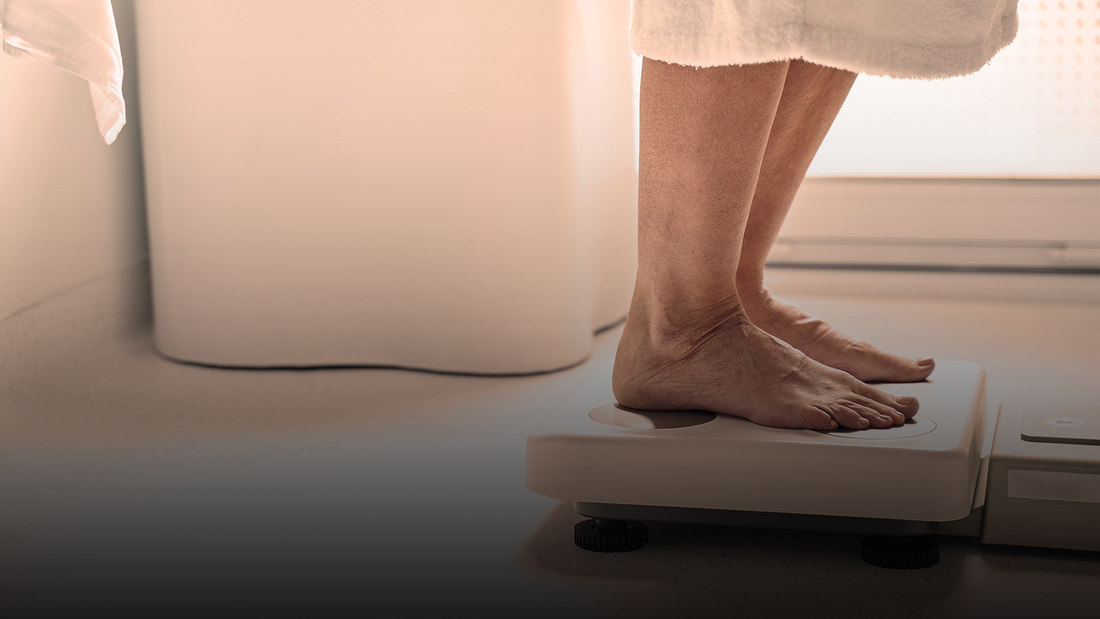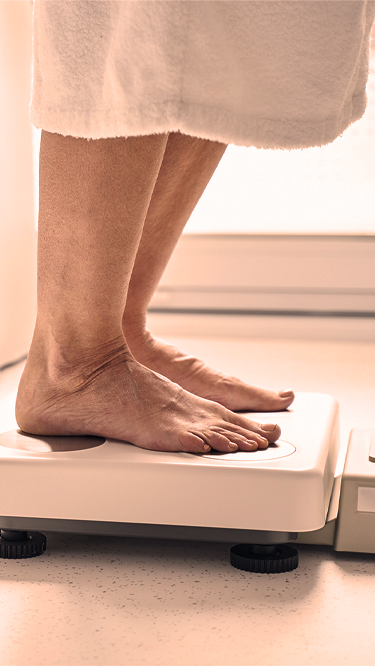

How Your Sleep Hygiene Can Impact Your Metabolism
Sleep hygiene may not be a term that you use very often, but it’s a concept that heavily impacts your life on a daily basis and it should become something you become conscientious about moving forward. Not only does your sleep hygiene have an effect on your energy levels, keeping your muscles healthy, and helping you stay focused, but it can also make an impact on your metabolism as well. If you're tracking your fitness, then sleep hygiene is something you should be taking care of as well.
These days, it feels like more and more people aren’t treating sleep like it’s an activity that should be prioritized. In fact, the CDC has reported that more than 1 in 3 Americans are sleep deprived, and they estimate that sleep-related issues, like trouble falling asleep, staying asleep, and sleep disorders, currently affect around 50-70 million Americans. This can be hugely detrimental because experiencing those periods of rest are tied to metabolic health. Over time, if left unchecked, poor sleep hygiene can contribute to the deterioration of your metabolic processes, which can be harmful for you long-term.
ZOZOFIT is here to break down how sleep hygiene can affect your metabolism and what you can do to keep your health – and sleep – on track.
What is Sleep Hygiene?
Sleep hygiene is a term used to describe your restful behaviors as well as the environment in which you sleep. When you prioritize your sleep, it can lead to improved mental and physical health and your quality of life as a whole. Achieving healthy sleep is something that is a crucial component of everyone’s well-being, and the best way to attain that goal is by focusing on improving your sleep hygiene.
Good sleep hygiene is all about positioning yourself in a way that you can achieve restful sleep every single night. This happens when you decide to optimize your sleep schedule, establish a pre-bed routine, and create an environment that is both welcoming and relaxing. Then, as you proactively stick to your daily sleep routine, this can help make a quality rest period feel more natural and it will also help you fall asleep more easily.
If you are having a hard time falling asleep, experiencing frequent sleep disturbances throughout the night, or you are regularly feeling sleepy during the daytime, these are the most telling signs of poor sleep hygiene. Even a lack of consistency in sleep quantity or quality can be a symptom of poor sleep hygiene. That’s why it’s important to make sure that you’re focused on your sleep hygiene because it’s something that can be harmful if left unchecked.
The Relationship Between Your Sleep and Your Metabolism
In case you didn’t know, metabolism is defined as the whole range of biochemical processes that occur within a living organism and it is made up of two different processes: anabolism (build-up) and catabolism (break down). In essence, metabolism is the amount of energy (calories) that the body burns in order to maintain itself.
When most people think about their health – or more specifically their metabolism – they generally take into consideration things like their diet and exercise. By being conscientious of what we eat and maintaining a consistent activity regimen, that can help you look and physique feel healthier. But the one thing that many people overlook is how getting a good night’s sleep can also be beneficial to your wellness in ways that aren’t reflected in your physique.
From a biological perspective, sleep functions as our body’s way of conserving energy and getting us ready for the next day. In order to achieve these goals, you have to be getting not only the right amount of sleep, but you also have to make sure that your sleep is high quality as well. When your body enters the normal sleep state, it can reduce your metabolic rate (the number of calories your metabolism is burning) by around 15-35 percent.
When you’re in a state of deep sleep, that’s when your metabolic rate is at its lowest, which allows your body to recover from everything you’ve done throughout the day. This is also the time when your glucose utilization decreases during deep sleep due to the reduced activity of neurons. During the early hours of the morning, glucose is then released from the liver in preparation for your body being active. What this means is that enjoying sufficient sleep can help promote maintenance of your body weight and body composition because you can rely on your internal fuel reserves so that you can perform at your very best the next day.
But if you’re not sleeping normally, that’s when problems can start to happen.
There are a number of studies that have come out over the last several years that have proven how sleep can directly impact various hormonal and metabolic processes in your body and it is extremely important in maintaining metabolic homeostasis, which is all of the different chemical processes that happen inside your body on a continual basis to help your body function normally. Additionally, studies have found that by engaging in better sleep hygiene, it can also make a favorable impact on weight loss, too.
At the University of Chicago, researchers found that individuals who increased their sleep duration were able to reduce their caloric intake by an average of 270 calories per day – which would translate to roughly 26 pounds (12 kilograms) of weight loss over three years if the behaviors were maintained over a long term. That’s why it’s important to be proactive about your sleep hygiene, as it influences so many aspects of your health and well-being.
Ways to Get Your Sleep Hygiene on Track
Now that you’ve seen how important sleep hygiene is to your wellness, it’s time to consider how you can make improvements to how you approach your routine so that you can enjoy a healthy lifestyle for years to come. If you want to take steps towards improving your sleep hygiene, there are several things you can do to get the rest that your body needs and that you deserve:
Set a Sleep Schedule: By establishing a sleep schedule, you are making sure that rest is something that is treated like an important part of your life. It’s essential to maintain a regular routine when it comes to your wake-up times, even during the weekend, so that you can maintain healthy sleep habits. Also, be sure to reduce the amount of naps that you take so that your mind and body are properly prepared for your established sleep time every night and don’t rush this process either, as creating an effective sleep schedule can take some time.
Stick to a Nightly Routine: Embracing a nightly routine goes far beyond when you’re sleeping. It has been shown that how you prepare to go to bed can greatly influence how well and how long you sleep. Before you are ready to head to bed, make sure that you are allowing for adequate time to start winding down (typically one hour), which is the perfect time to do personal preparations like changing into your sleepwear, brushing your teeth or washing up for the night.
Something else you should do is stop using electronic devices during that time before bed as well so that your brain can properly disconnect and be ready for a restful slumber. If you still end up having trouble falling asleep, take time to meditate or partake in other relaxing activities to get you better prepared to sleep.
Establish Better Daytime Habits: As it turns out, what you do during the day is important to your nighttime experience. By incorporating healthy habits into your everyday activities, that will help set you up for high quality sleep at night. During the day, make sure to do some kind of physical activity, as exercise has been shown to help you get better rest when you go to sleep. Also, be sure to enjoy some exposure to natural light, as that will help regulate your circadian rhythm, which is what helps you sleep better, too. Make sure you are being mindful of when you consume either caffeine, alcohol or larger meals, because if you enjoy any of these too late in the day, it can have a negative effect on how you sleep at night.
Create a Sleep-Friendly Environment: One of the biggest components of good sleep hygiene is creating an environment that is conducive to being a welcoming environment for rest. This means taking steps to keep light sources in your bedroom at a minimum, sleeping on a proper mattress that is comfortable and inviting, and for those who may need to enhance the feeling of relaxation, it can be helpful to incorporate either calming scents or meditative music into your sleep environment.
It’s important to note that while sleep hygiene is a universal concept, it’s something that will be different for everyone, so be sure to create a plan that best fits your personal needs. If you aren’t mindful of or you are just setting yourself up for failure. Additionally, if you are unable to manage your sleep hygiene on your own, or you are noticing that a lack of sleep is negatively impacting your wellness, it’s important to reach out to a professional for assistance.
Severe sleep deprivation can lead to serious health issues that should not be overlooked, and sometimes you cannot manage health issues on your own, so don’t be afraid to ask professionals for help when necessary.

![zf-w-[168px] zf-h-[40px]](http://zozofit.com/cdn/shop/t/15/assets/logo-desktop.png?v=117713855448369080381753069598)


